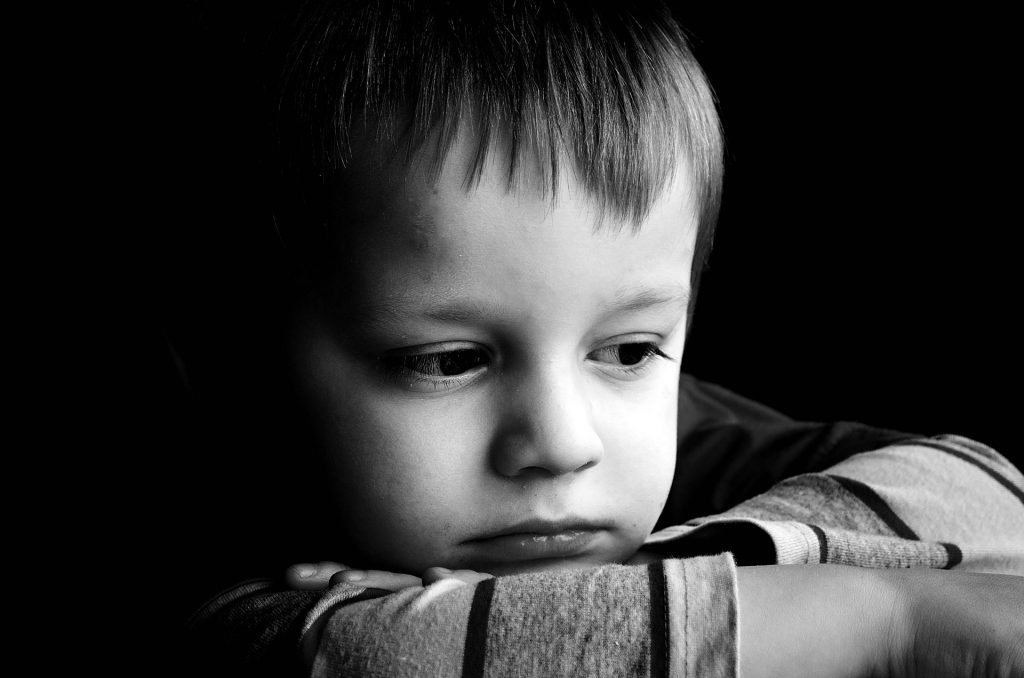Children and stress – what parents need to know

Children and adolescents experience stress and mental fatigue on a regular basis that can often be overlooked or dismissed as just part of growing up. We spoke with Dr. Michelle Marshall, psychiatrist and subspecialist in child and adolescent psychiatry, and Dr. Hannah Klein, resident in child and adolescent psychiatry, to learn about how stress can affect children’s mental health, and tips for parents to recognize the signs of stress and understand how to help their children work through it.
How can you tell when a child is stressed?
All children are different and because of that they’ll show stress in different ways, Dr. Marshall says. Some will be more cheerful, some will be quieter, some may complain about stomach pains and some may refuse to go to school. Dr. Marshall says it’s important for parents to get a sense of who their child is so that they can recognize when their behavior is out of the ordinary, and use that as an opportunity to start conversations about what’s going on.
How can parents start conversations about stress with their children?
Rather than waiting until there’s an issue, parents should continually reinforce that they care about their child’s feelings, and let them know that they want to hear when something serious is happening, Dr. Klein says. Having frequent conversations about feelings and emotions will normalize that kind of talk, which will make it easier for children to share what’s going on with them when something’s not quite right.
What effects can stress have on children?
A little bit of stress is healthy for children, just as it is for adults, Dr. Klein says. It can help us function in our daily lives and strive for goals. The issue is when the stress doesn’t go away; too much stress can impact our ability to enjoy life and it can have long-term consequences on our self-esteem and relationships, so it’s especially important to catch it early and help children develop coping methods to manage any stress they are experiencing, Klein says.
What kind of coping strategies are recommended for children dealing with stress?
Talking about stress is the best coping method, Dr. Klein says. Parents can help by letting their children know there’s an open line of communication and that they’re available to talk anytime, so that when they’re having a hard time coping, children feel comfortable going to them. Other strategies include living a healthy lifestyle – getting 8-10 hours of sleep, exercising/moving every day and practicing deep breathing (breathing in and out for a count of four) to relax.
If a child is resistant to opening up about stress, what can parents do?
Dr. Klein says children need to open up in their own time, when they feel comfortable doing so, and that means that parents may need to be patient. Parents can also offer support by telling their children about other resources available to them – including social workers at their school and Kids Help Phone. Dr. Marshall says kids can sometimes feel like they’re a burden to their already-busy parents, so an important message for parents to share is that they do have time for their kids, and that all emotions are normal to have; creating a safe space for children to share their thoughts will help them open up.
What else can parents do to support their children?
With technology becoming more popular and more common in homes and schools, Dr. Marshall says it’s important for parents to have conversations with their children about social media and the effects it can have. Bullying can happen in new forms and can look much different now than it did ten years ago. For parents who don’t use technology regularly and/or aren’t sure how to talk about the potentially negative impacts of social media on kids, resources are available on mediasmarts.ca and prevent.ca.
The other key advice for parents is to make sure they’re spending time with their children, says Dr. Marshall. Creating family moments together is really important – gathering the family together for dinner is a good way to catch up and check in about how everyone’s day was, and regular board game nights and weekend walks together will provide more opportunities to talk. All of these are simple ways for parents to create an open and sharing dialogue and show that they have an interest in their child’s life.
Learn more about our Child and Adolescent Mental Health Unit.
